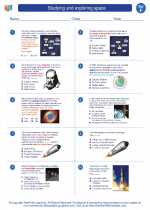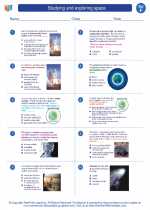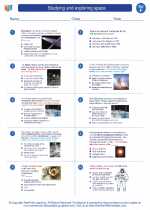Mechanical Waves
Mechanical waves are a type of wave that requires a medium to travel through. They are caused by a disturbance or vibration in the medium, which then travels through the medium, carrying energy from one place to another. There are several types of mechanical waves, including transverse waves, longitudinal waves, and surface waves.
Types of Mechanical Waves
- Transverse Waves: In transverse waves, the particles of the medium move perpendicular to the direction of the wave. This causes the medium to oscillate up and down or side to side as the wave passes through it.
- Longitudinal Waves: In longitudinal waves, the particles of the medium move parallel to the direction of the wave. This causes the particles to compress and expand as the wave passes through the medium.
- Surface Waves: Surface waves are a combination of transverse and longitudinal waves that occur at the interface between two different mediums, such as water and air. These waves cause the particles at the surface to move in elliptical orbits, creating a rolling motion.
Properties of Mechanical Waves
Mechanical waves have several important properties, including amplitude, wavelength, frequency, and speed.
- Amplitude: The amplitude of a wave is the maximum displacement of a particle from its rest position. It is a measure of the energy carried by the wave.
- Wavelength: The wavelength of a wave is the distance between two consecutive points that are in phase, such as two crests or two troughs. It is usually denoted by the Greek letter lambda (λ).
- Frequency: The frequency of a wave is the number of complete wave cycles that pass a given point in one second. It is measured in hertz (Hz).
- Speed: The speed of a wave is the distance the wave travels in a given amount of time. It is calculated by multiplying the frequency of the wave by its wavelength.
Applications of Mechanical Waves
Mechanical waves have numerous practical applications in everyday life and various fields of science and technology. Some common examples include sound waves, seismic waves, ocean waves, and ultrasound waves used in medical imaging. Understanding the properties and behavior of mechanical waves is crucial for many areas of study, including physics, engineering, and environmental science.
Study Guide
To study mechanical waves effectively, it is important to understand the fundamental concepts and principles associated with wave motion. Here are some key topics to focus on:
- Definition and characteristics of mechanical waves
- Differences between transverse, longitudinal, and surface waves
- Properties of mechanical waves, including amplitude, wavelength, frequency, and speed
- Mathematical relationships between wave properties (e.g., the relationship between frequency, wavelength, and speed)
- Real-world applications and significance of mechanical waves
Additionally, practicing problems related to wave calculations and wave behavior can help reinforce understanding and problem-solving skills. Conducting hands-on experiments or simulations to visualize wave phenomena can also enhance comprehension of wave concepts.
Remember to review and consolidate your learning by testing yourself with quizzes, flashcards, and practice exercises.
By mastering the principles of mechanical waves, you will gain a deeper understanding of the nature of wave motion and its relevance in various scientific and technological contexts.
.◂Science Worksheets and Study Guides Sixth Grade. Studying and exploring space

 Worksheet/Answer key
Worksheet/Answer key
 Worksheet/Answer key
Worksheet/Answer key
 Worksheet/Answer key
Worksheet/Answer key
 Vocabulary/Answer key
Vocabulary/Answer key
 Vocabulary/Answer key
Vocabulary/Answer key
 Vocabulary/Answer key
Vocabulary/Answer key
 Vocabulary/Answer key
Vocabulary/Answer key
